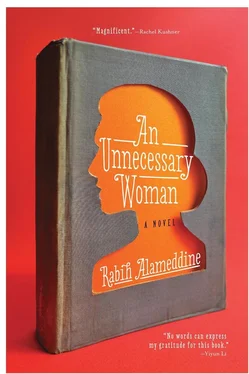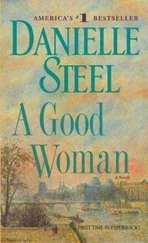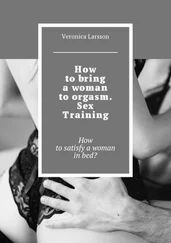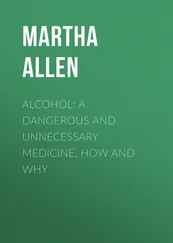Rabih Alameddine
An Unnecessary Woman
From my village I see as much of the universe as you can see from earth,
So my village is as big as any other land
For I am the size of what I see,
Not the size of my height.
— Fernando Pessoa as Alberto Caeiro, The Keeper of Sheep
Perhaps reading and writing books is one of the last defences human dignity has left, because in the end they remind us of what God once reminded us before He too evaporated in this age of relentless humiliations — that we are more than ourselves; that we have souls. And more, moreover.
Or perhaps not.
— Richard Flanagan, Gould’s Book of Fish
The cure for loneliness is solitude.
— Marianne Moore, from the essay
“If I Were Sixteen Today”
Don Quixote’s misfortune is not his imagination, but Sancho Panza.
— Franz Kafka, Dearest Father: Stories and Other Writings
You could say I was thinking of other things when I shampooed my hair blue, and two glasses of red wine didn’t help my concentration.
Let me explain.
First, you should know this about me: I have but one mirror in my home, a smudged one at that. I’m a conscientious cleaner, you might even say compulsive — the sink is immaculately white, its bronze faucets sparkle — but I rarely remember to wipe the mirror clean. I don’t think we need to consult Freud or one of his many minions to know that there’s an issue here.
I begin this tale with a badly lit reflection. One of the bathroom’s two bulbs has expired. I’m in the midst of the evening ritual of brushing my teeth, facing said mirror, when a halo surrounding my head snares my attention. Toothbrush in right hand still moving up and down, side to side, left hand reaches for reading glasses lying on the little table next to the toilet. Once atop my obtrusive nose they help me see that I’m neither a saint nor saintly but more like the Queen Mother — well, an image of the Queen Mother smudged by a schoolgirl’s eraser. No halo this, the blue anomaly is my damp hair. A pigment battle rages atop my head, a catfight of mismatched contestants.
I touch a still-wet lock to test the permanency of the blue tint and end up leaving a sticky stain of toothpaste on it. You can correctly presume that multitasking is not my forte.
I lean over the bathtub, pick up the tube of Bel Argent shampoo I bought yesterday. I read the fine print, squinting even with the reading glasses. Yes, I used ten times the amount prescribed while washing my hair. I enjoy a good lather. Reading instructions happens not to be my forte either.
Funny. My bathroom tiles are rectangular white with interlocking light blue tulips, almost the same shade as my new dye. Luckily, the blue isn’t that of the Israeli flag. Can you imagine? Talk about a brawl of mismatched contestants.
Usually vanity isn’t one of my concerns, doesn’t disconcert me much. However, I’d overheard the three witches discussing the unrelenting whiteness of my hair. Joumana, my upstairs neighbor, had suggested that if I used a shampoo like Bel Argent, the white would be less flat. There you have it.
As I understand it, and I might be wrong as usual, you and I tend to lose short wavelength cones as we age, so we’re less able to distinguish the color blue. That’s why many people of a certain age have a bluish tint to their hair. Without the tint, they see their hair as pale yellow, or possibly salmon. One hairstylist described on the radio how he finally convinced this old woman that her hair was much too blue. But his client still refused to change the color. It was much more important that she see her hair as natural than the rest of the world do so.
I’d probably get along better with the client.
I too am an old woman, but I have yet to lose many short wavelength cones. I can distinguish the color blue a bit too clearly right now.
Allow me to offer a mild defense for being distracted. At the end of the year, before I begin a new project, I read the translation I’ve completed. I do minor final corrections, set the pages in order, and place them in the box. This is part of the ritual, which includes imbibing two glasses of red wine. I’ll also admit that the last reading allows me to pat myself on the back, to congratulate myself on completing the project. This year, I translated the superb novel Austerlitz, my second translation of W. G. Sebald. I was reading it today, and for some reason, probably the protagonist’s unrequited despair, I couldn’t stop thinking of Hannah, I couldn’t, as if the novel, or my Arabic translation of it, was an inductor into Hannah’s world.
Remembering Hannah, my one intimate, is never easy. I still see her before me at the kitchen table, her plate wiped clean of food, her right cheek resting on the palm of her hand, head tilted slightly, listening, offering that rarest of gifts: her unequivocal attention. My voice had no home until her.
During my seventy-two years, she was the one person I cared for, the one I told too much — boasts, hates, joys, cruel disappointments, all jumbled together. I no longer think of her as often as I used to, but she appears in my thoughts every now and then. The traces of Hannah on me are indelible.
Percolating remembrances, red wine, an old woman’s shampoo: mix well and wind up with blue hair.
I’ll wash my hair once more in the morning, with no more tears baby shampoo this time. Hopefully the blue will fade. I can just imagine what the neighbors will say now.
For most of my adult life, since I was twenty-two, I’ve begun a translation every January first. I do realize that this is a holiday and most choose to celebrate, most do not choose to work on New Year’s Day. Once, as I was leafing through the folio of Beethoven’s sonatas, I noticed that only the penultimate, the superb op. 110 in A-flat Major, was dated on the top right corner, as if the composer wanted us to know that he was busy working that Christmas Day in 1821. I too choose to keep busy during holidays.
Over these last fifty years I’ve translated fewer than forty books — thirty-seven, if I count correctly. Some books took longer than a year, others refused to be translated, and one or two bored me into submission — not the books themselves, but my translations of them. Books in and of themselves are rarely boring, except for memoirs of American presidents (No, No, Nixon) — well, memoirs of Americans in general. It’s the “I live in the richest country in the world yet pity me because I grew up with flat feet and a malodorous vagina but I triumph in the end” syndrome. Tfeh!
Books into boxes — boxes of paper, loose translated sheets. That’s my life.
I long ago abandoned myself to a blind lust for the written word. Literature is my sandbox. In it I play, build my forts and castles, spend glorious time. It is the world outside that box that gives me trouble. I have adapted tamely, though not conventionally, to this visible world so I can retreat without much inconvenience into my inner world of books. Transmuting this sandy metaphor, if literature is my sandbox, then the real world is my hourglass — an hourglass that drains grain by grain. Literature gives me life, and life kills me.
Well, life kills everyone.
But that’s a morose subject. Tonight I feel alive — blue hair and red wine alive. The end of the year approaches, the beginning of a new year. The year is dead. Long live the year! I will begin my next project. This is the time that excites me most. I pay no attention to the Christmas decorations that burst into fruitful life in various neighborhoods of my city, or the lights welcoming the New Year. This year, Ashura falls at almost the same time, but I don’t care.
Читать дальше












